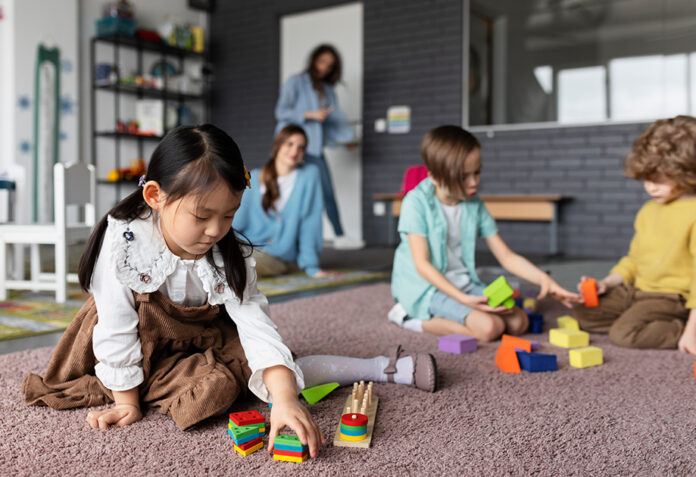|
Getting your Trinity Audio player ready...
|
Separation anxiety in parents and children is common when a child joins daycare. It is a normal part of a child’s development and occurs when they feel distress or worry when separated from their primary caregiver. This Separation anxiety can manifest as crying, clinginess, tantrums, and physical symptoms such as stomachaches or headaches. It is important to continue the daycare routine even if your child is experiencing separation anxiety. Gradual exposure to separations and consistent routines will help them develop coping skills and adjust to the new environment.
The duration of Separation anxiety in parents and children can vary from child to child and parent to parent. For most children, it gradually decreases within a few weeks or months as they become familiar with the daycare setting and develop a sense of security.
Separation Anxiety in Children: How It Feels
Separation Anxiety in children can be a bewildering and overwhelming experience for them. The thought of being away from their parents and in an unfamiliar environment can trigger intense feelings of fear and distress. They may worry that their parents will not return or that something bad will happen to them while they are apart. These emotions can lead to clingy behaviour, tears, and resistance to separation from their parents. The child may also experience physical symptoms such as headaches, stomachaches, or difficulty sleeping.
Separation Anxiety in Parents: How It Feels
Witnessing their child’s distress during separation can trigger Separation Anxiety in Parents. It is natural for parents to feel guilty or worried about leaving their child at daycare. They may question their decision or doubt their ability to provide comfort and support from a distance. However, parents need to recognize that separation anxiety is a temporary and normal part of their child’s development. By understanding their child’s perspective and implementing effective strategies, parents can help their child navigate separation anxiety more smoothly.
How to cope with separation anxiety in parents and children
- Establish a consistent routine: Creating a predictable routine can provide a sense of security for the child. Having a regular drop-off and pick-up schedule helps the child anticipate and understand the separation, making it easier for them to cope.
- Practice separation in small doses: Gradually exposing the child to brief separations can help them build confidence and trust. Start with short periods of separation and gradually increase the duration over time.
- Maintain a positive attitude: Parents must convey a positive attitude towards daycare and separation. When parents show confidence and reassure their children that they will return, it helps alleviate their anxiety.
- Communicate with the daycare provider: Open communication with the daycare provider is crucial. Share information about the child’s likes, dislikes, routines, and specific concerns. A caring and supportive daycare provider can play a significant role in helping the child adjust.
- Create a transition object: A transition object, such as a favorite toy or a family photo, can provide comfort and familiarity during separations. This object serves as a reminder of the parent’s presence and can help ease anxiety.
- Encourage independence: Encouragement in the child’s daily activities can boost their confidence and reduce separation anxiety. Simple tasks like putting on their shoes or feeding themselves can foster a sense of competence.
- Offer reassurance: Reassure your child that separation is temporary and that you will return to pick them up. Remind them of the fun activities they will engage in at daycare.
- Practice relaxation techniques: Teach your child relaxation techniques such as deep breathing or visualisation to help them manage their anxiety. These techniques can be practiced together before separation or during moments of distress.
- Stay connected throughout the day: Establish a communication routine with the daycare provider to receive updates on your child’s day. This connection can provide reassurance and help alleviate any concerns.
- Seek support: Reach out to other parents or support groups that have gone through similar experiences. Sharing stories and advice can provide comfort and practical strategies for managing separation anxiety.
Separation anxiety in parents and children is a chronic and temporary phase many children and parents experience when joining daycare. Parents need to approach this transition with empathy, understanding, and patience. Over time, as the child becomes familiar with the daycare environment and establishes trusting relationships, their anxiety will diminish. Remember, Depression in Teenagers‘ separation anxiety is a sign of healthy attachment and growth; it will gradually fade away.
Generally, separation anxiety does not have long-term effects. Most children outgrow it as they develop social skills, independence, and confidence in coping with separations. Parents can address their separation anxiety by recognizing that it is a normal




